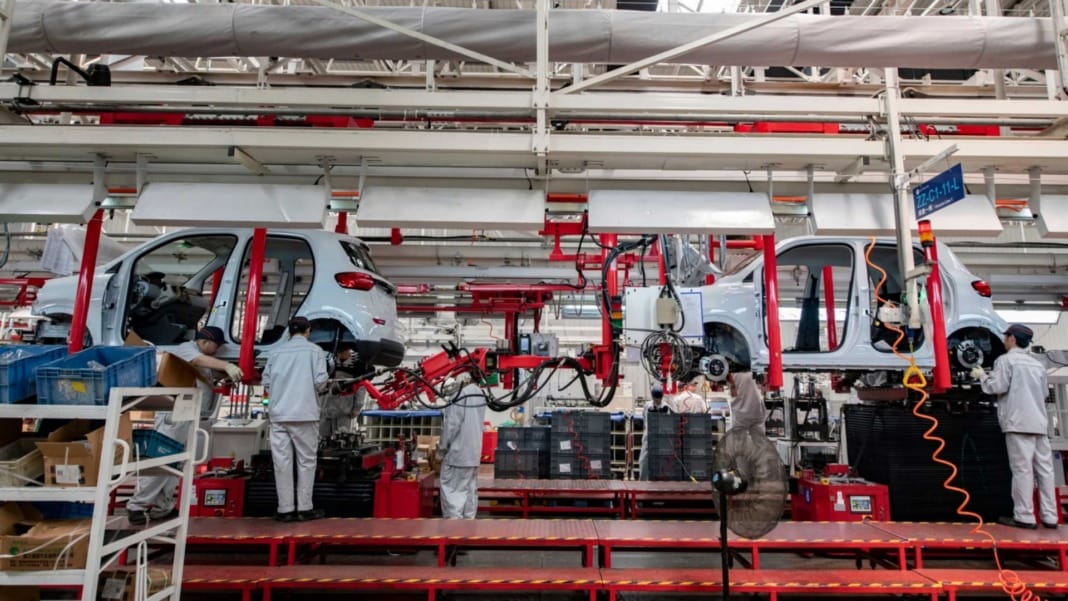Starting next month, the European Union will impose an additional tariff on vehicles imported from China. The European Commission announced this decision on Wednesday, explaining that the new tariffs could go as high as 38 percent, adding to the existing 10 percent duty the EU already imposes on foreign vehicles.
Addressing unfair competition
This move follows a months-long investigation that concluded Chinese electric vehicle (EV) manufacturers benefit from unfair state-backed subsidies, such as [specific examples of subsidies], allowing them to sell their vehicles at lower prices than their competitors. According to a recent study by independent research provider Rhodium Group, China-made EVs make up about 37 percent of all EV imports into the EU.
The European Commission stated that the new tariffs aim to “remove the substantial unfair competitive advantage” enjoyed by Chinese EVs and to ensure they “compete on a level playing field.” In the context of international trade, a ‘level playing field’ means [explanation of the concept and its importance in international trade]. The tariffs will vary by company, with BYD facing a 17.4 percent duty, Geely at 20 percent, and SAIC at 38.1 percent.
China’s response
China’s Ministry of Commerce expressed strong disapproval of the new tariffs. In a statement, the agency said, “The EU ignored the facts and WTO [World Trade Organisation] rules, ignored repeated strong objections from China, and ignored the appeals and dissuasions of many EU member states’ governments and industries.” The WTO, as the international organisation that deals with the global rules of trade between nations, has [explanation of the WTO’s role in this situation and its implications for the EU’s decision].
The tension between the EU and China mirrors recent actions taken by other nations. Last month, President Joe Biden raised tariffs on Chinese EVs in the United States from 25 percent to 100 percent. This decision stemmed from concerns within the industry that inexpensive Chinese EVs could flood the market, potentially harming domestic automakers. These actions are part of a larger trade dispute between the US and China, which [context on the dispute and its impact on the automotive industry and international trade relations].
Ensuring fair market conditions
The EU’s decision is a clear step towards ensuring fair competition within its markets. By imposing these additional tariffs, the European Commission aims to protect its automotive industry from what it sees as unfair practices. This is part of a broader effort to create a fairer trading environment where all players operate under the same rules and conditions. The decision could potentially have benefits for the European automotive industry, which would have an impact on the industry and its competitiveness.
While these tariffs are intended to level the playing field, they also serve as a stark reminder of the escalating global trade tensions surrounding the automotive industry, particularly in the swiftly expanding EV sector. The EU’s move is a significant reflection of a broader trend of nations re-evaluating their trade policies in response to the shifting dynamics of international trade and competition.
As the situation develops, both the EU and China will likely engage in further negotiations and discussions to address these trade issues. The outcome of these talks could be [potential outcomes], which would have significant implications for the future of the global EV market and international trade relations. This could mean [potential scenarios and their impact on the market and trade relations].





